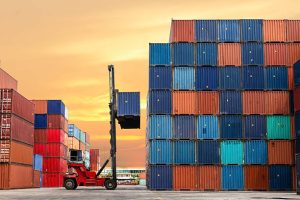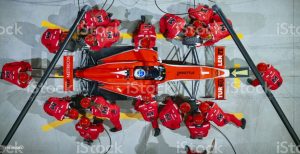This is new blog-Don’t miss out!
Unveiling the Challenges: Exploring Supply Chain Problems for Solar Panels

Global supply chain blogs
About the Author
 Vivek Sood: Sydney based managing director of Global Supply Chain Group, a strategy consultancy specializing in supply chains. More information on Vivek is available on www.linkedin.com/in/vivek and more information on Global Supply Chain Group is available www.globalscgroup.com
Vivek Sood: Sydney based managing director of Global Supply Chain Group, a strategy consultancy specializing in supply chains. More information on Vivek is available on www.linkedin.com/in/vivek and more information on Global Supply Chain Group is available www.globalscgroup.com
Vivek is the Managing Director of Global Supply Chain Group, a boutique strategy consulting firm specialising in Supply Chain Strategies, and headquartered in Sydney, Australia . He has over 24 years of experience in strategic transformations and operational excellence within global supply chains. Prior to co-founding Global Supply Chain Group in January 2000, Vivek was a management consultant with top-tier strategy consulting firm Booz Allen & Hamilton.
Vivek provides strategic operations and supply chain advice to boards and senior management of global corporations, private equity groups and other stakeholders in a range of industries including FMCG, food, shipping, logistics, manufacturing, chemicals, mining, agribusiness, construction materials, explosives, airlines and electricity utilities.
Vivek has served world-wide corporations in nearly 500 small and large projects on all continents with a variety of clients in many different industries. Most of projects have involved diagnostic, conceptualisation and transformation of supply chains – releasing significant amount of value for the business. His project work in supply chain management has added cumulative value in excess of $500M incorporating projects in major supply chain infrastructure investment decisions, profitable growth driven by global supply chain realignment, supply chain systems, negotiations and all other aspects of global supply chains.
Vivek has written a number of path breaking articles and commentaries that are published in several respected journals and magazines. Vivek has spoken at several supply chain conference, forums and workshops in various parts of the world. He has also conducted several strategic workshops on various aspects of supply chain management. He received his MBA with Distinction from the Australian Graduate School of Management in 1996 and prior to these studies spent 11 years in the Merchant Navy, rising from a Cadet to Master Mariner.
More information on Vivek is available on www.linkedin.com/in/vivek and more information on Global Supply Chain Group is available on www.globalscgroup.com
Introduction
In a world where environmental sustainability is increasingly paramount, harnessing the power of the sun has emerged as a compelling solution. Solar energy, derived from sunlight, is rapidly gaining momentum as a clean and renewable energy source. At the heart of this transformative energy revolution lies the ‘solar panel’, a remarkable technology that converts sunlight into electricity. However, the complex and interconnected supply chain plays a pivotal role in making solar power a viable and accessible option for individuals and businesses.
We will delve into the intricacies of the solar panel supply chain, unraveling the journey of its various components, and exploring the players involved in their manufacture. By understanding the key components and stakeholders, we can gain insights into the sustainable practices, technological advancements, and challenges that shape the solar industry today.
To understand the complex Supply chain, first we need to know what solar panels and made of. The Major Components in solar panel are
- Photovoltaic cell
- Encapsulation material
- Junction Box

Manufacturing: the backbone of Solar panel production
Having familiarized ourselves with the components comprising a solar energy system, let us now delve into comprehending the various manufacturers responsible for producing these essential elements.
Main manufacturing players in solar energy
- Silicon Manufacturers: Silicon is the primary material used in PV cells. Companies specializing in silicon production extract, refine, and process this essential component, ensuring its quality and efficiency.
- PV Cell Manufacturers: These manufacturers assemble PV cells using high-quality silicon wafers. They employ advanced manufacturing techniques to optimize cell performance and improve overall energy conversion efficiency.
- Module Manufacturers: Module manufacturers integrate PV cells into solar panels, encapsulating them with protective materials and ensuring the panels’ structural integrity. These companies adhere stringent quality standards to deliver reliable and efficient solar panels to the market.
- System Integrators: System integrators design and install complete solar energy systems, combining solar panels, inverters, mounting structures, and other components. They play a crucial role in bringing solar power solutions to homes, businesses, and communities.
A typical Supply Chain for Solar Panel

The solar supply chain is broken down into a four-part process that involves materials, manufacturing, shipping, and usage.
Raw materials
The process of creating solar panels begins with the gathering of raw materials, which involves mining and sourcing the necessary components. China, as a prominent player in the solar panel industry, holds a significant advantage in terms of access to crucial raw materials, particularly polysilicon. “Polysilicon” is a key component in the production of solar panels, serving as the fundamental material for the cells and modules that convert sunlight into electricity. China’s ability to manufacture the majority of solar panels can be attributed to its access to the world’s largest reserves of polysilicon. The country’s strategic positioning in terms of resources grants it a competitive edge in the solar industry.
The abundance of polysilicon deposits has contributed to the country’s dominance in the solar panel market. Chinese companies, equipped with advanced mining infrastructure and technology, efficiently extract polysilicon from the earth, ensuring a consistent supply of raw materials for the solar panel manufacturing process. Furthermore, China has also made significant investments in polysilicon production facilities, establishing a robust supply chain within its borders. This integrated approach enables streamlined production processes, allowing manufacturers to control the quality and quantity of polysilicon required for solar panel production.
While China’s access to vast polysilicon reserves presents a competitive advantage, it is essential to recognize the global nature of the solar panel supply chain. Other countries, such as the United States, Germany, and South Korea, also contribute to the production of polysilicon, albeit to a lesser extent.
However, due to China’s large-scale production capabilities and extensive supply chain infrastructure, it has emerged as a central player in the polysilicon market. Chinese manufacturers leverage their access to abundant raw materials to produce solar panels at a competitive price point, contributing to the global proliferation of solar energy adoption
Manufacturing
The majority of the manufacturing process, from converting raw materials into solar panels, takes place within China’s borders. The manufacturing journey begins with the transformation of polysilicon into usable components.
Polysilicon is melted to a molten state in a high-temperature furnace, then poured into molds to form solid ingots. These ingots are sliced into thin wafers using diamond wire saws. The wafers undergo various treatments to remove impurities and create a smooth surface. They are then transformed into solar cells through intricate steps, including doping with boron and phosphorus to create a semiconductor structure that generates electricity when exposed to sunlight.
After doping, the solar cells undergo a metallization process. Thin metal fingers and busbars are screen-printed onto the cell’s surface, providing electrical pathways to collect the generated electricity. Anti-reflective coatings are also applied to enhance light absorption and optimize energy conversion efficiency. Once the solar cells are ready, they are assembled into solar modules, also known as solar panels. Multiple solar cells are interconnected and encapsulated within a protective layer to form a module. The interconnections are made using soldering or conductive adhesives, ensuring efficient electrical flow among the cells. The encapsulation process involves laminating the solar cells between a transparent front sheet, usually made of tempered glass, and a backsheet to provide protection against environmental factors such as moisture and UV radiation.
Chinese solar panel manufacturers have invested heavily in automated production lines and advanced manufacturing techniques, enabling large-scale and cost-effective production. These facilities often employ robotic systems and quality control measures to ensure consistent output and adherence to industry standards. China’s manufacturing prowess has contributed significantly to the availability and affordability of solar panels worldwide, driving the widespread adoption of solar energy.
It is important to note that while China dominates solar panel manufacturing, other countries also contribute to the global production landscape. Efforts are being made to promote local manufacturing capabilities in various regions, fostering a diversified and resilient solar panel manufacturing ecosystem.

Shipping
China plays a vital role in shipping solar panels worldwide as the main supplier to many countries. Most solar panels made in China are sent abroad, with only a small portion used domestically. China’s strong position in solar panel manufacturing, including large-scale production facilities, well-developed supply chains, and competitive prices, makes it an appealing choice for countries seeking renewable energy solutions.
Solar panels produced in China are transported to destinations across the globe, including Europe, North America, Asia, and other regions with a growing demand for clean energy. Shipping methods vary based on factors like distance, urgency, and cost considerations, with sea freight being the most common due to its cost-effectiveness for large quantities. China’s extensive network of ports, such as Shanghai, Shenzhen, and Ningbo-Zhoushan, facilitates the smooth export of solar panels, supported by a robust logistics infrastructure.
Challenges in the Solar Energy Supply Chain
Over dependency on one country
Heavy reliance on a single country for solar panel production and distribution creates a significant supply chain dependency. In the case of China, which has emerged as a major player in the solar panel industry, this dependency is particularly pronounced.
China’s dominance in solar panel manufacturing means that any disruption in its manufacturing capabilities can have far-reaching effects on the global supply of solar panels. Factors such as natural disasters, technological failures, labor disputes, or changes in government policies can impact the production capacity and efficiency of Chinese solar panel manufacturers. In such cases, there is a risk of supply shortages and delays, which can hinder the growth and deployment of solar energy projects worldwide.
Geopolitical risk
Relying solely on one country, such as China, for the majority of solar panel supply introduces significant geopolitical risks. These risks stem from the potential impact of political tensions, trade disputes, or changes in government policies in the manufacturing country, which can result in trade barriers, tariffs, or export restrictions.
Political tensions between countries can have an adverse effect on the smooth flow of solar panels. Disputes, conflicts, or strained diplomatic relations between the manufacturing country and importing nations can lead to disruptions in trade and commerce. These tensions can result in increased regulatory hurdles, delays in customs clearance, or even outright trade embargoes, hampering the timely supply of solar panels. Shifts in government policies in the manufacturing country can significantly impact the global solar panel market. Changes in regulations related to subsidies, incentives, export controls, or environmental standards can affect the competitiveness and profitability of solar panel manufacturers. Alterations in support mechanisms or withdrawal of favorable policies may lead to fluctuations in production capacity, pricing, and market dynamics, causing disruptions in the global supply of solar panels.
The manufacturing country may impose export restrictions on solar panels for various reasons, including domestic demand, strategic considerations, or safeguarding critical resources. Export quotas, licensing requirements, or outright bans on solar panel exports can restrict the availability of solar panels in importing countries, potentially leading to supply shortages and delays in renewable energy projects.
Uncertainties resulting from political tensions, trade disputes, or changes in government policies can deter investment, hinder long-term planning, and dampen investor confidence in the solar energy sector. This can lead to market fluctuations, reduced project pipelines, and delays in the transition to clean energy.

Lack of competition and innovation
When one country, such as China, holds a dominant market position in solar panel production and distribution, it can discourage competition and innovation in the industry. Limited competition can have several negative implications, including hampering technological advancements, hindering cost reductions, and limiting the availability of diverse product options.
In a monopolistic market, where one country controls the majority of solar panel production, there is a risk of stagnation in technological advancements. Limited competition can reduce the incentive for manufacturers to invest in research and development, slowing down the pace of innovation. This can hinder the improvement of solar panel efficiency, durability, and overall performance, limiting the potential for further advancements in the industry. The lack of competition can hinder the downward pressure on prices. Without the need to compete with other manufacturers on pricing, the dominant country may have less motivation to pursue cost-cutting measures or optimize manufacturing processes. This can lead to higher costs for solar panels, making them less affordable and potentially impeding the widespread adoption of solar energy.
There may be reduced incentive to explore and adopt substitute materials for solar panel production. Alternative materials, such as thin-film solar cells or emerging photovoltaic technologies, may offer advantages in terms of flexibility, lightweight design, or improved performance. However, without competition, the dominant market player may be less motivated to invest in or adopt these alternative materials, hindering their development and potential application in the solar energy sector. The lack of competition and innovation can lead to a slower pace of industry evolution. In a dynamic field like solar energy, where rapid advancements are needed to address climate change and energy transition goals, a monopolistic market can impede progress. Without competition pushing the boundaries of what is possible, the industry may struggle to keep pace with evolving energy needs, grid integration requirements, and emerging market trends
Environmental Concerns
Manufacturing Processes: Solar panel production involves processes that can harm the environment if not controlled properly. These processes use hazardous chemicals, consume high amounts of energy, and generate waste. In a monopolistic market, strong environmental regulations are necessary to ensure sustainable practices and minimize the ecological impact of manufacturing.
Pollution: Concentrated solar panel production without stringent environmental regulations can cause pollution of air, water, and soil. Emissions from manufacturing facilities, including greenhouse gases and other pollutants, contribute to local and global environmental problems. Strict pollution control measures, clean technologies, waste treatment systems, and monitoring programs are essential to mitigate the environmental impact.
Resource Depletion: Solar panel manufacturing requires the extraction and utilization of various resources like metals, minerals, and energy. Concentrated production can strain these resources, potentially leading to their depletion. Sustainable resource management practices, such as recycling and responsible sourcing of raw materials, are crucial to minimize the environmental footprint and ensure long-term resource availability.
Waste Management: Solar panel production generates waste materials, including manufacturing by-products and end-of-life panels. Improper waste management can lead to land and water pollution. Effective waste management, including recycling, reusing, and proper treatment, is vital to minimize environmental impacts and promote circular economy principles.

"Addressing Supply Chain Challenges: Key Steps for Improvement"
Supply chain problems can arise in the solar panel industry due to various factors such as limited manufacturing capacity, logistical challenges, lack of transparency, and geopolitical risks. Addressing these issues is crucial to ensure a reliable and efficient supply chain for solar panels. Here are some key strategies to solve supply chain problems associated with solar panels:
Diversify Manufacturing and Sourcing
Reducing reliance on a single country for solar panel manufacturing can help mitigate supply chain risks. Encouraging the establishment of manufacturing facilities in multiple regions and promoting a diversified sourcing strategy can ensure a more resilient supply chain. This approach reduces the impact of disruptions caused by geopolitical tensions, trade disputes, or other unforeseen events in a single manufacturing country.
Strengthen Logistics and Transportation
Improving logistics and transportation infrastructure is vital for efficient solar panel distribution. This includes optimizing supply chain processes, enhancing coordination between suppliers, manufacturers, and distributors, and investing in reliable transportation networks. Efficient transportation options, such as using eco-friendly shipping methods and leveraging digital tracking technologies, can help streamline the movement of solar panels, reduce delivery times, and minimize the risk of delays.
Enhance Transparency and Traceability
Implementing robust systems for tracking and tracing solar panels throughout the supply chain promotes transparency and reduces the risk of counterfeit or substandard products. Utilizing technologies like blockchain can provide a secure and immutable record of each panel’s origin, manufacturing details, and certifications. Enhanced transparency enables stakeholders to verify the authenticity, quality, and environmental sustainability of solar panels, ensuring consumer confidence and accountability within the supply chain.
Foster Collaboration and Information Sharing
Collaboration among industry stakeholders, including manufacturers, suppliers, distributors, and regulatory bodies, is essential to address supply chain challenges. Establishing industry-wide platforms for information sharing and best practices can facilitate collaboration, promote knowledge exchange, and help identify and address common issues. Collaboration can also lead to the development of standardized guidelines, certifications, and sustainability frameworks that contribute to a more sustainable and resilient solar panel supply chain.
Promote Responsible and Sustainable Practices
Emphasizing responsible and sustainable practices throughout the supply chain is crucial for the long-term viability of the solar panel industry. This includes promoting ethical sourcing of raw materials, adopting clean and energy-efficient manufacturing processes, ensuring proper waste management and recycling programs, and reducing the carbon footprint of transportation. Encouraging the adoption of recognized sustainability standards and certifications can also drive industry-wide improvements in environmental and social performance.
Develop Local Manufacturing Capacities:
Encouraging the development of local manufacturing capacities in regions with growing demand for solar panels can help decentralize production and reduce dependence on long-distance shipping. Supporting local manufacturers through incentives, research and development funding, and capacity building programs can foster a more localized and resilient supply chain, while also creating economic opportunities in those regions.
Anticipate and Mitigate Risks
Proactively identifying and mitigating potential risks in the supply chain is crucial for maintaining a stable and reliable flow of solar panels. This includes conducting risk assessments, establishing contingency plans, and diversifying supplier networks to minimize the impact of disruptions. Monitoring global market trends, geopolitical developments, and regulatory changes helps in anticipating risks and implementing timely measures to mitigate their impact
Conclusion
The solar panel industry has witnessed remarkable growth and has become a key player in the global renewable energy transition. However, the complex supply chain associated with solar panels presents various challenges that need to be addressed to ensure a reliable and sustainable energy future.
The heavy reliance on a single country, such as China, for solar panel manufacturing and distribution highlights the need for diversification in the industry. By encouraging the establishment of manufacturing facilities in multiple regions and promoting a diversified sourcing strategy, the industry can mitigate supply chain risks associated with geopolitical tensions, trade disputes, or other unforeseen events in a single manufacturing country.
Improving logistics and transportation infrastructure is crucial for the efficient distribution of solar panels. Optimal supply chain processes, enhanced coordination between stakeholders, and investments in reliable transportation networks can streamline the movement of solar panels, reduce delivery times, and minimize the risk of delays.
Transparency and traceability are vital for ensuring the authenticity and quality of solar panels. Implementing robust tracking and tracing systems, such as blockchain technology, can provide a secure record of each panel’s origin, manufacturing details, and certifications. Enhanced transparency enables stakeholders to verify the environmental sustainability of solar panels, ensuring consumer confidence and accountability within the supply chain.
Collaboration among industry stakeholders is essential for addressing supply chain challenges. Establishing industry-wide platforms for information sharing and best practices can facilitate collaboration, promote knowledge exchange, and help identify and address common issues. Collaboration can also lead to the development of standardized guidelines, certifications, and sustainability frameworks that contribute to a more sustainable and resilient solar panel supply chain.
Promoting responsible and sustainable practices throughout the supply chain is crucial. This includes ethical sourcing of raw materials, adopting clean and energy-efficient manufacturing processes, ensuring proper waste management and recycling programs, and reducing the carbon footprint of transportation. Encouraging the adoption of recognized sustainability standards and certifications can drive industry-wide improvements in environmental and social performance.
Addressing the supply chain problems associated with solar panels requires a collaborative effort from industry stakeholders, policymakers, and consumers. By implementing these strategies and fostering innovation, the solar panel supply chain can become more resilient, sustainable, and capable of meeting the growing demand for clean and renewable energy.
Introducing.....

The global supply chain of products is an immense and complex system. It involves the movement of goods from the point of origin to the point of consumption, with intermediate steps that involve resources, materials and services to transport them. A supply chain encompasses activities such as purchasing, production, distribution and marketing in order to satisfy customer demands. Companies rely on a well-managed supply chain to meet their business goals by providing quality products and services at competitive prices.
Efficiently managing a global supply chain requires considerable effort, particularly when dealing with multiple suppliers located around the world. Complex logistics tracking systems are needed to monitor product movements from one place to another. Technologies such as artificial intelligence (AI) can help companies keep track of shipments across different locations for greater visibility into their processes.
what did Our Reader say?

GARRY BADDOCK
Chief Operating Officer Graphite Energy
I have experience with many of the well-known top-tier strategy firms but chose Global Supply Chain to support me on my supply chain projects. They always meet and exceed my expectations due to the quality of the work, the ability to work collaboratively with internal teams, and the flexibility to adjust the project approach when required.

PHILLIPPE ETTIENNE
CEO - Large Global transnational corporation From: FOREWORD - OUTSOURCING 3.0
When I engaged Vivek’s services for supply chain transformation in one of the companies I was heading, we expected the careful and methodical approach that he was famous for... I was pleased to note that the original target set for 3 years was surpassed by almost 70% in just 18 months.

TONY FEDOROWICZ
Vice-President Supply Chain Asia Pacific
I have used their services for several business transformations and workshops in many companies. Each time an outstanding workshop and project result was delivered ensuring the success of the business transformation project. Savings surpassed $25 Million per annum in one case. Very powerful ideas, were implemented very diligently.

Jean-Briac Le Dean
Co-Founder & Agen
Vivek is a very collaborative and open leader who leads teams by example. Whether internal teams, or clients teams, all are impressed by his intensity, energy level and drive to make things a little better.

Lorna Calder Johnson
Omni-Channel Product Marketing
P & L Executive
Vivek's transformation expertise is apparent from his results and dedication to operations and supply chains. His strategic expertise, knowledge and network make him a standout even among an excellent team.
Related Posts
Click below to see related posts.

The Impact of Plummeting Shipping Container Prices Across Industries
Explore the far-reaching consequences of plummeting shipping container prices on diverse industries, revealing the intricate connections shaping global trade, supply chains, and economic landscapes.

Race Day Logistics: Intricacies of Pit Stop
Explore the race day’s heartbeat: the art of pit stops. Uncover the intricate logistics orchestrating split-second tire changes, refuels, and strategy adjustments that define Formula 1’s high-speed drama.

Mastering Travel Logistics in Formula 1 Racing
Discover the art of flawless travel logistics in the high-speed world of Formula 1. Uncover how precision planning and real-time coordination keep teams on track across the global circuit.
